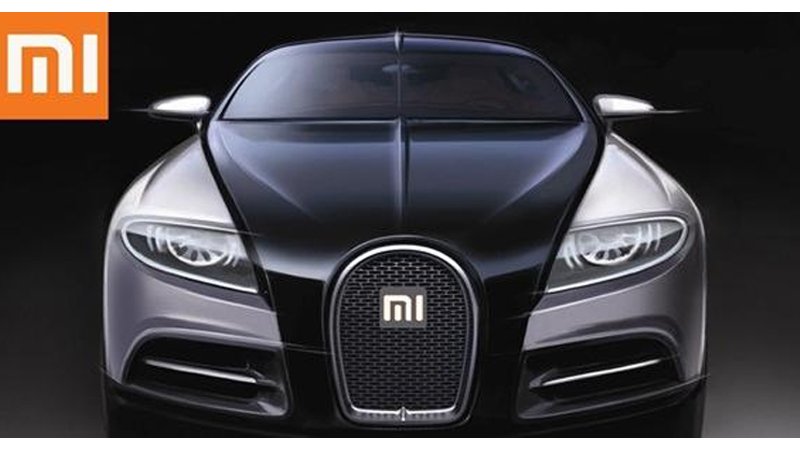
중국의 미디어매체 pandaily가 전한 소식이다.
중국의 언론 매체 레이트포스트는 중국의 스마트폰 제조업체 샤오미는 세계 스마트폰 산업의 정체에 신 사업으로 전기차 사업을 진행할 것으로 결정했다고 전했다.
해당 프로젝트는 전략적 결정으로 간주되며 회사의 설립자이자 CEO인 Lei Jun(레이 준)이 주도하게 될 것으로 전해진다. 아직까지 벤처의 신설과 형태 등은 회의중이며, 확정된 것은 없다는 내용도 함께 전해졌다. 해당 소식에 홍콩에서 상장된 샤오미는 이날 오전 거래 감소세에서 6.5% 상승세를 보였다.
Lei는 2013년 Tesla의 CEO 일론 머스크와의 만남 이후 자동차 제조에 대한 관심을 크게 보였다. 샤오미의 벤처 캐피탈인 Shunwei Capital은 2015년 EV 스타트업 NIO(니오)에 투자했으며 2016년과 2019년에는 Xpeng(샤오펑)에 투자했다.
특허청 웹 사이트에 게시된 문서에 따르면 샤오미는 2015년부터 크루즈 컨트롤, 네비게이션, 보조 운전 및 기타 자동차 지향 기술을 포함한 특허 출원 목록을 제출했다고 레이트포스트는 보도했다.

샤오미의 샤오AI 음성인식 스피커는 Mercades-Benz차량과 FAW Group의 Bestune T77 크로스 오버 특별판 모델을 포함해서 다양한 전략적 협력을 통해 이미 구현되었다.
2020년 6월, 회사는 ‘Xiaomi car alliance’로 중국 상표 및 관련 그래픽 상표 등록까지 진행했다.
샤오미의 새로운 벤처기업 창설은 사실 놀라운 일이 아니다. 세계 최대 자동차 시장으로 여겨지는 중국에는 현재 Baidu(바이두), Alibaba(알리바바), Tencent(텐센트), Huaewi(화웨이)와 같은 테크기반 기업들이 전기차 시장에 이미 진입을 진행하고 있다.
바이두는 Greely(글리)와 새로운 EV 회사를 설립했으며 알리바바는 SAIC과 전기 자동차 스타트업 합작 투자인 Zhiji를 개발했다. 텐센트는 Foxconn 및 China Harmony와 제휴하여 스마트 전기 자동차 생산을 시작했으며 Huawei는 국영 자동차 제조업체인 Changan과 함께 새로운 모델을 개발할 계획을 발표했다.
이러한 중국 테크기업의 전기차 사업 진출은 중국정부의 ‘Made in China 2025’이니셔티브의 핵심 부분에 자율주행차 사업이 포함되었기에 가능했다. 중국정부는 2025년까지 판매되는 자동차의 30%가 스마트 커넥티비티를 갖기를 기대하며 EV 부문에 1,000억 위안(한화 약 17조 3500억 원)을 투자하는 등 광범위한 정책 지원을 제공하고 있다.
한편, 데이터 제공업체인 카운터 포인트 리서치에 따르면 베이징에 본사를 둔 샤오미는 2020년 3분기에 애플을 제치고 3번째로 큰 스마트폰 제조업체가 되었으며, 시장 점유율 13%에 해당하는 4,620만 대의 기기를 판매했다.
Chinese smartphone maker Xiaomi has decided to build cars, amid a period of stagnant growth across the global smartphone industry, according to Chinese media outlet LatePost, citing multiple sources familiar to the matter.
The project is considered a strategic decision and could be led by company founder and CEO Lei Jun, the report said.
The exact form and path of the new venture are still in the works and nothing is set in stone yet, the sources said.
Following the news, Hong Kong-listed Xiaomi surged back from a decline in morning trading to add 6.5% on the day. Xiaomi declined to comment when contacted by Pandaily.
Since his two 2013 visits with Tesla CEO Elon Musk in the US, Lei has toyed with the idea of auto manufacturing. Xiaomi’s venture capital arm Shunwei Capital has invested in EV start-up NIO in 2015, as well as in XPeng in 2016 and 2019.
According to documents published on the National Patent Office website, Xiaomi has filed a list of patent applications including cruise control, navigation, assisted driving and other car-oriented technologies since 2015, LatePost reported.
Xiaomi’s Xiaoai virtual assistant system has already been implemented via a range of strategic cooperations, including in Mercedes-Benz vehicles and FAW Group’s special-edition model of the Bestune T77 crossover.
In June 2020, the company registered a Chinese trademark that roughly translates as “Xiaomi car alliance” and related graphic trademarks.
Beijing-based Xiaomi overtook Apple to become the third largest smartphone maker in Q3 2020, shipping 46.2 million devices amounting to a market share of 13%, according to data provider Counterpoint Research.
Xiaomi’s potential new venture might not come as a surprise to many — it follows in the footsteps of fellow tech giants such as Baidu, Alibaba, Tencent and Huawei in its entrance to the world’s largest auto market, the Chinese mainland.
Baidu has set up a new EV firm with Geely, while Alibaba has developed Zhiji, an electric car startup joint venture with SAIC. Tencent also has partnered up with Foxconn and China Harmony to start producing smart electric vehicles and Huawei has announced plans to develop new models with state-owned carmaker Changan.
The Chinese government has included autonomous cars as one of the key sectors in its ‘Made in China 2025’ initiative, which aims to transform the country into a leading manufacturer of high-end, innovative products.
The government hopes to see 30% of cars sold by 2025 to have smart connectivity and has been providing extensive policy support to the EV sector, including tax subsidies, license plate laws, and registration benefits.
![]()



![[마케터를 위한 트렌드 인사이트 리포트] ‘이모님’소리 듣는 로봇청소기, 이제는 필수 가전템으로!](https://mobiinsidecontent.s3.ap-northeast-2.amazonaws.com/kr/wp-content/uploads/2025/04/30111555/250507_%EB%A1%9C%EB%B4%87-%EC%B2%AD%EC%86%8C%EA%B8%B0_%EC%84%AC%EB%84%A4%EC%9D%BC-218x150.jpg)
![[마케터의 업무일지] 브랜드에게 빌런이 필요한 이유](https://mobiinsidecontent.s3.ap-northeast-2.amazonaws.com/kr/wp-content/uploads/2025/04/14155058/250415_%EB%B8%8C%EB%9E%9C%EB%93%9C-%EB%B9%8C%EB%9F%B0_%EC%84%AC%EB%84%A4%EC%9D%BC-218x150.png)
![[IT트렌드 속성 가이드북] 일론 머스크는 주주들과 소통한다는데요?](https://mobiinsidecontent.s3.ap-northeast-2.amazonaws.com/kr/wp-content/uploads/2024/08/26124305/%EB%8B%A4%EC%9A%B4%EB%A1%9C%EB%93%9C-4-218x150.jpg)